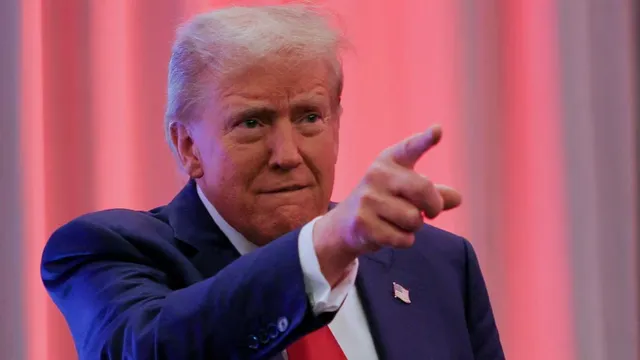- By Sakshi Srivastava
- Thu, 17 Jul 2025 02:11 PM (IST)
- Source:JND
US President Donald Trump’s sweeping tariff regime is beginning to yield major financial results for the United States, as customs revenue soars and much of the world hesitates to retaliate. According to newly released US Treasury data, the country collected 64 billion Dollars in customs duties in the second quarter of 2025 — an increase of 47 billion Dollars over the same period last year, marking a historic high.
The spike comes four months after Trump launched a bold and controversial overhaul of US trade policy, including a minimum 10% tariff on most global imports, a 50% levy on steel and aluminium, and a 25% duty on automotive goods. While critics warned of a spiraling trade war, the feared global backlash has largely failed to materialise. "America's trading partners have largely failed to retaliate," The Financial Times noted in a recent assessment. The paper also observed that Trump, once derided for “chickening out” in global negotiations, now appears to be reaping political and economic rewards for his hardline approach.
ALSO READ: One Man, Many Hats: Here Is How Trump Officials Are Juggling Multiple Jobs
Only China and Canada have mounted substantial retaliatory responses. Meanwhile, Canada introduced 155 billion Canadian Dollars in counter-tariffs earlier this year but has since pulled back, abandoning a planned digital services tax and shelving any escalation on steel duties.
Other US trade partners have opted for caution. The European Union, the world’s largest trading bloc, has drafted a retaliatory tariff package worth 72 billion Euros on US goods — including bourbon, aircraft, and cars — but has delayed implementation. Officials say they are awaiting the outcome of an August 1 deadline set by Trump for renewed negotiations.
“They affect the whole spectrum of US relations, including those regarding security,” an EU official told Reuters, referring to broader geopolitical concerns, such as America’s role in Ukraine. Mexico, America’s largest trade partner, has also refrained from retaliating. President Claudia Sheinbaum has emphasised diplomacy, calling for “economic pragmatism” over confrontation.
Economically, Trump’s policy has delivered short-term fiscal benefits. The Treasury reported that in June alone, tariffs generated over 27 billion Dollars— pushing the total for the fiscal year above 100 billion Dollars for the first time and contributing to an unexpected 27 billion Dollars monthly budget surplus.
Still, economists and critics warn of longer-term consequences. Higher tariffs can increase costs for American businesses and consumers, particularly in sectors like manufacturing, retail, and automotive. Companies like Apple, Adidas, and Mercedes-Benz have already begun adjusting supply chains and absorbing price shocks to protect their US market share. “Trump has made it clear that he is prepared to raise tariffs further in the face of retaliation,” said Marta Bengoa, professor of international economics at City University of New York, in an interview with The Financial Times. “Many countries learned from the 2018-2019 trade war that retaliation often leads to counter-retaliation rather than negotiated solutions.”

